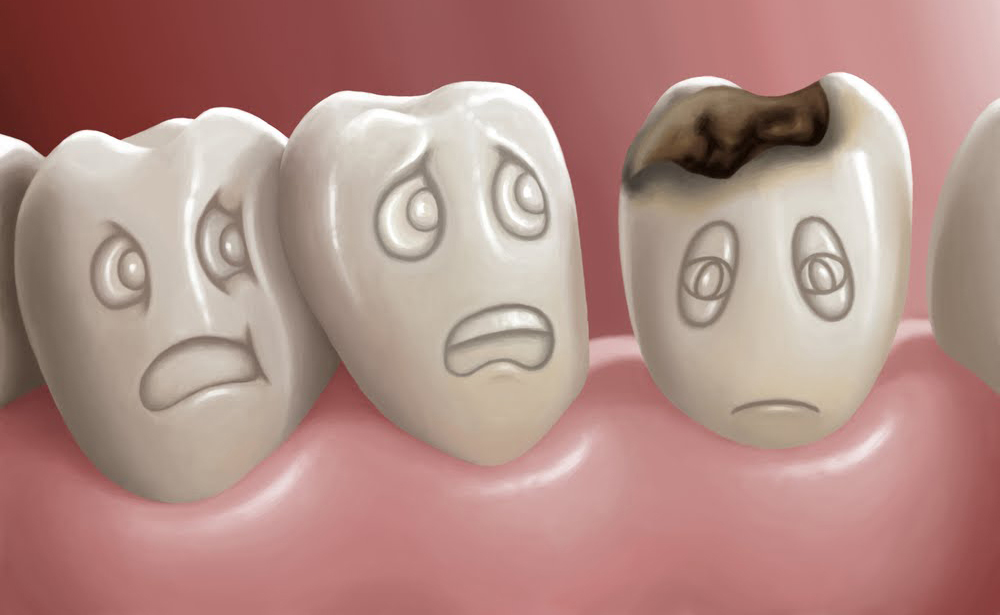Cavity Protection in Denton, TX
Dental cavities can be prevented with a combination of good oral hygiene and regular visits to the dentist. When too much oral bacteria takes up residence in your mouth, the acids they secrete can eat through the enamel, leading to holes known as cavities or dental caries.
The sooner you have a cavity filled, the better, since untreated cavities can grow larger and eventually cause serious toothaches and infection. What’s even better than treating cavities is preventing them, which requires a combination of good at-home dental care, regular professional cleanings, and sometimes supplemental treatments like sealants and fluoride treatments.
Signs of dental cavities
- Toothache, spontaneous pain or pain that occurs without any apparent cause
- Tooth sensitivity
- Mild to sharp pain when eating or drinking something sweet, hot or cold
- Visible holes or pits in your teeth
- Brown, black or white staining on any surface of a tooth
- Pain when you bite down
Top cavity prevention techniques
- Good dental hygiene – brushing for two minutes twice a day along with flossing
- Professional cleanings – removal of tartar from your teeth using special scraping instruments
- Flouride treatment – a natural mineral that helps build strong, decay-resistant tooth enamel
- Dental sealants – plastic seals that are placed in the deep grooves of the back molars, providing a physical barrier between the tooth enamel and the contents of the mouth
Cavity Detection & Treatment
Cavities don’t usually cause symptoms until they are pretty large, so it is important to schedule regular checkups with your dentist. During these checkups, Dr. Mangum will examine your teeth and utilize x-rays to help locate cavities. When cavities are detected early, Dr. Mangum can generally treat them by removing the decaying tooth material and filling the hole with a composite filling.
In more advanced cavity stages, Dr. Mangum may have to place a porcelain crown on the tooth in order to protect it and add stability. Extensive decay may even move into the interior pulp of the tooth, causing an infection resulting in a root canal therapy in order to save the tooth; in severe cases, the tooth may even need to be extracted.


